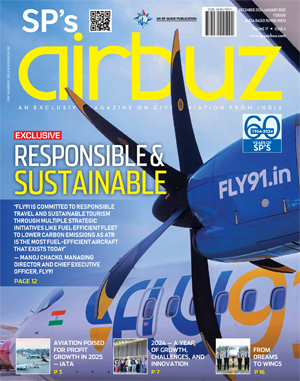Aircrew - Sleep Attack

Napping on the job is not an unusual phenomenon, but for a man in a flying machine it can be dangerous. It is better to accept the problem of fatigue arising from sleepiness and resolve it rather than ignore it.
Sleeping while on duty or ‘sleeping on the job’ is often considered as a gross misconduct. It is not an unusual phenomenon but for a man in a flying machine it can be dangerous. Air India Express Flight IC 812 Boeing 737-800 crashed while landing at Mangalore city’s ‘table-top’ runway in the wee hours of the morning of May 22, 2010. Investigations revealed that the pilot had ‘dozed off’ during the flight for a long time. The consequent phenomena of ‘sleep inertia’ probably led him to make a poor and ill-timed judgement while landing the aircraft resulting in the tragic air crash.
The enquiry report submitted by the Ministry of Civil Aviation claimed that Captain Glusica onboard the ill-fated Air India Express IC-812 had slept for over 90 minutes during the flight while an analysis of the cockpit voice recorder (CVR) revealed that one of the pilots had been asleep in the cockpit for 110 minutes. Apart from the fact that the CVR had picked up no conversation from the pilots, the sound of snoring and deep breathing could be heard in the recording. According to the American National Transportation Safety Board, it is the first instance of snoring ever to be recorded on a CVR.
Science has always been behind the all-evolving flight duty time limitations (FDTL). The phenomena known as acute or chronic fatigue, the science behind circadian rhythms of the human body, the blessings of sleep and its restorative properties have long been studied but advances in knowledge have rapidly overtaken the archaic regulatory approaches to incorporate the newer findings. Regulatory requirements will go to any length to guard against the possibility of a heart attack or loss of consciousness in the cockpit but when it comes to a ‘sleep attack’, regulators appear to be oblivious of the need to issue diktats
A sleep attack is a compelling need to doze off. It is a no-brainer that pilots often doze off in the cockpit with embarrassing or even fatal consequences. Unlike the seemingly intangible effects of high cholesterol on the functioning of the heart and coronary artery disease, the effects of a good or bad sleep is commonly experienced and understood by all of us. The role of a good night’s sleep as a restorative cannot, therefore, be over emphasised.
Sleep Research
Some well-accepted findings based on sleep research include:
- Aircrew need between six to eight hours of good quality sleep every night. The quality of sleep is very important.
- The human body is programmed to feel sleepy twice in 24 hours—between midnight and 7 a.m., and in the mid afternoon, between 1-4 p.m. A sumptuous lunch may add to the drowsiness.
- Bad dreams that cause high levels of terror or distress are usually the result of stress or anxiety states, preceding sleep.
- Self-evaluation of sleepiness correlates closely with sleep latency. Simply put, you know you need to recover that missing sleep (the ‘sleep debt’). It can prove harmful to deny it, so it is not advisable to ignore untimely sleepiness.
- Sleep debt can be ‘bought back’ or redeemed, by one or two good long sleep periods, preferably in a congenial relaxing atmosphere. Piling up your ‘sleep debt’ can lead to chronic fatigue with serious ramifications. A common phenomenon faced by pilots is that upon awakening from a nap, one could suffer from sleep inertia—a short-term continuation of the nap with eyes wide open.
- Blurred vision, mental irritability, fatigue, errors of cognition, inability to concentrate, errors of judgement and jerky physical movements are some common symptoms of sleep deficit.
- Lack of sleep or poor quality of sleep can lead to appetite problems resulting in over eating and weight gain.
- Sleep disorders are linked to heart disease, stroke and hypertension; staying awake at least three nights a week for a month or longer or facing difficulties in falling asleep could lead one to be labeled an insomniac (long sleep latency).
Needless to say, commercial pilots need to follow highly disciplined routines. They are expected to be at the peak of their alertness scales throughout the flight period, both by day and night.





